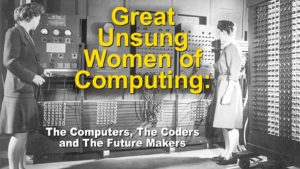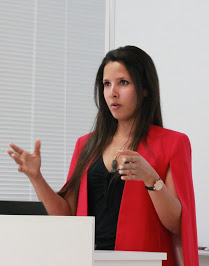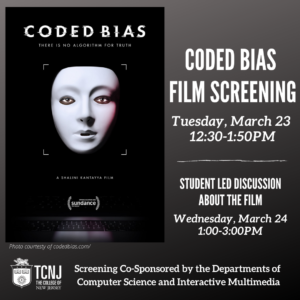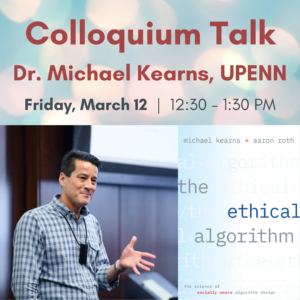 On Tuesday, April 13 from 12:30-1:30 PM, there will be a public viewing of a 2016 film titled “Great Unsung Women of Computing.” It is about great women computer scientists and engineers who were behind the scenes when the ENIAC (75th anniversary, by the way, counting from the UPenn era) was developed. This is the final colloquia series event of the semester.
On Tuesday, April 13 from 12:30-1:30 PM, there will be a public viewing of a 2016 film titled “Great Unsung Women of Computing.” It is about great women computer scientists and engineers who were behind the scenes when the ENIAC (75th anniversary, by the way, counting from the UPenn era) was developed. This is the final colloquia series event of the semester.
In the United States, women are vastly underrepresented in STEM (Science, Technology, Engineering & Math) fields, holding under 25% of STEM jobs and a disproportionately low share of STEM undergraduate degrees. GREAT UNSUNG WOMEN OF COMPUTING is a series of three remarkable documentary films that show how women revolutionized the computing and Internet technology we use today, inspiring female students to believe that programming careers lie within their grasp. The Computers features the extraordinary story of the ENIAC Programmers, six young women who programmed the world’s first modern, programmable computer, ENIAC, as part of a secret WWII project. They programmed ENIAC without programming language (for none existed) and harnessed its power to perform advanced military calculations at lightning speeds. However, when the ENIAC was unveiled in 1946, the Programmers were never introduced and they became invisible. This stunning documentary features rare footage and never-before-seen interviews with the ENIAC Programmers. 70 years later, this is their story. The Coders tells the story of two extraordinary women, Sarah Allen and Pavni Diwanji whose technologies revolutionized the Internet: Sarah co-invented Flash, the first multimedia platform supporting video, graphics, games and animation for the internet, while Pavni invented the Java servlet to allow web applications to respond quickly to requests from users everywhere. In The Future Makers, Andrea Colaço, a young MIT PhD, shares her dream of a world in which we interact with our smart devices using natural hand gestures, not static keyboards or touchpads. She invented 3D “gestural recognition technology” and co-founded 3dim to develop and market it. In 2013, 3dim won MIT’s $100K Entrepreneurship Prize and launched Andrea towards her dream of innovation and changing the world. Winner of the Grand Jury Award for Best Short Documentary at the United Nations Association Film Festival.
— Candace Smith, Booklist.
— Tim Bartik, Senior Economist, Upjohn Institute.
https://tcnj.zoom.us/j/



